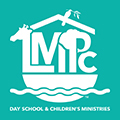Program Information
Lake Murray Presbyterian Church (LMPC) Day School WEBSITE IS CURRENTLY UNDER CONSTRUCTION!
Come back soon for exciting new information!
Full-time Program
Part-time Program
EXTRA-CURRICULAR ACTIVITIES
Infant program
Toddler program
Two-year-old program
Three-year-old program
